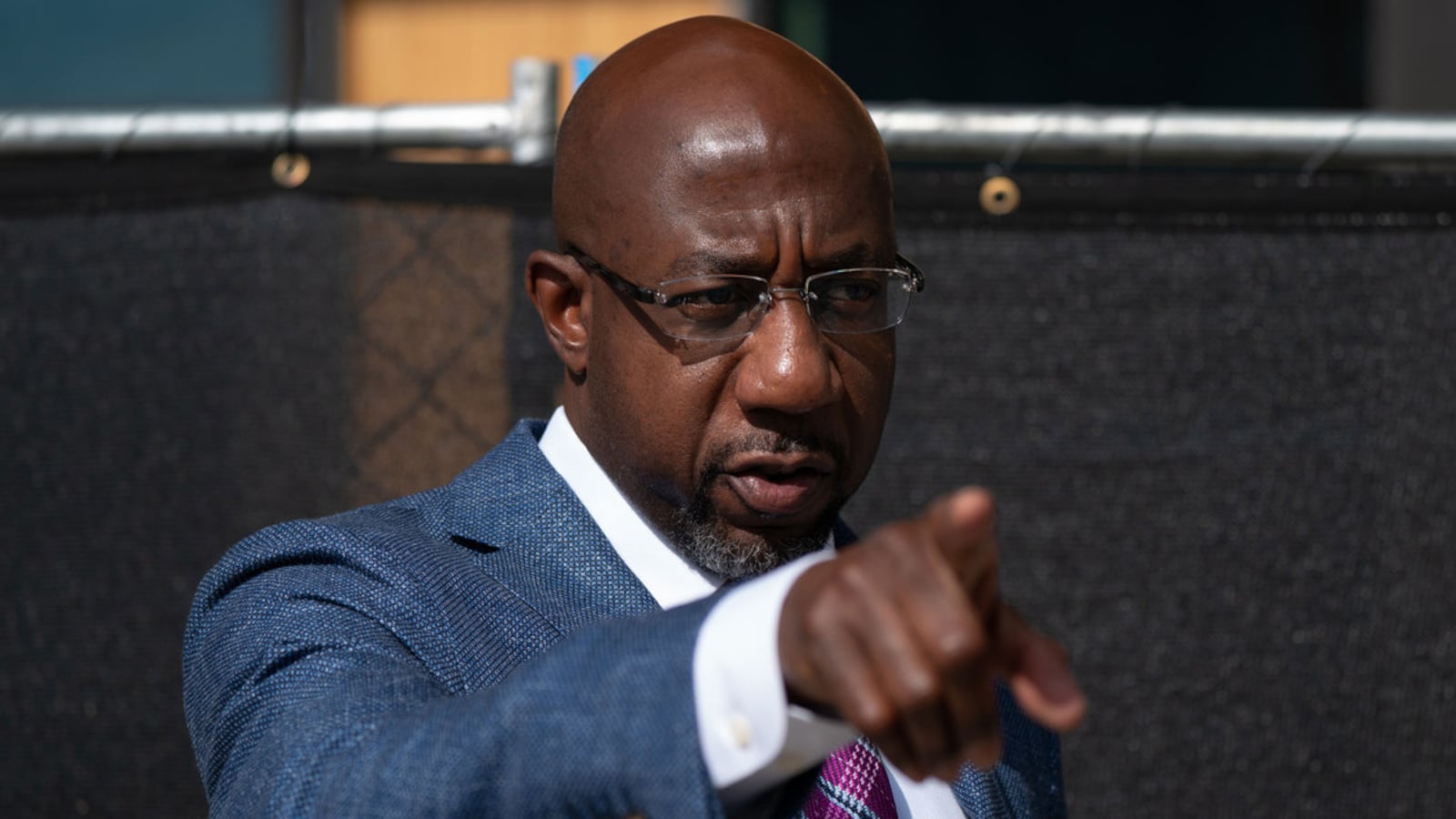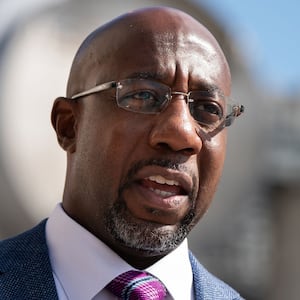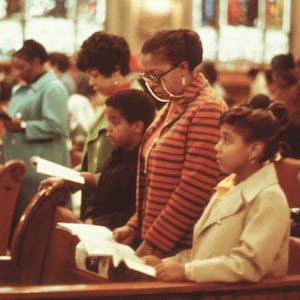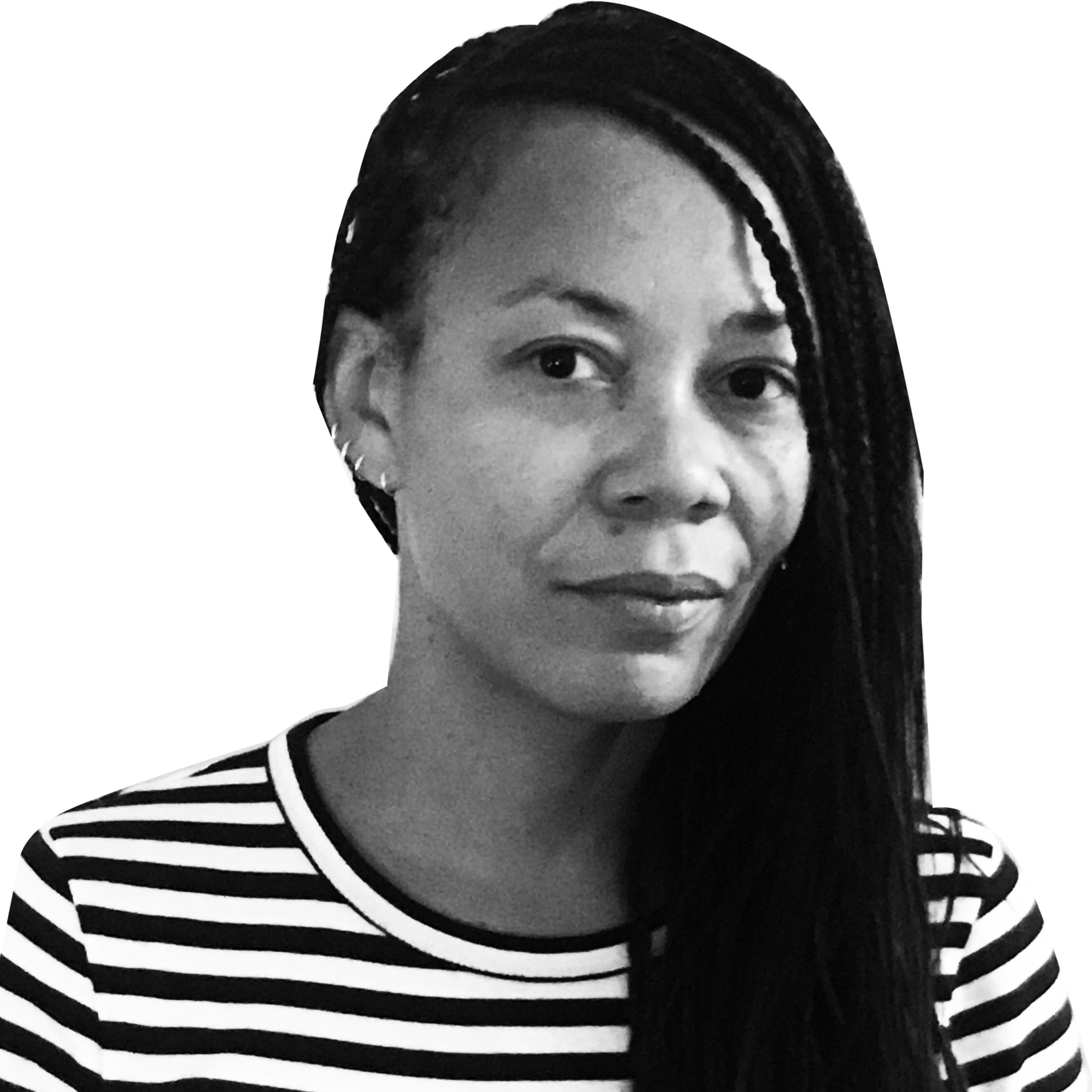It would be charitable to call the white religious right’s continuous attacks on Rev. Raphael Warnock, beginning from the moment he launched his successful bid to become the first Black U.S. senator from Georgia, merely un-Christian.
Most recently, Georgia Baptist minister and Donald Trump loyalist Doug Collins, who once claimed Warnock’s stance as a “pro-choice pastor” is an oxymoronic “lie from the bed of hell,” blamed the senator’s condemnation of Georgia’s new voting restrictions—but not the racist law itself—for MLB’s decision to relocate its All-Star Game from the state, crying that “woke” Warnock “spread lies” about the legislation. Just a week ago, a now-deleted tweet from Warnock’s account—which stated that the “meaning of Easter is more transcendent than the resurrection of Jesus Christ. Whether you are Christian or not, through a commitment to helping others we are able to save ourselves”—so enraged very-online white evangelicals that they spent the holiest day in the Christian calendar casting judgment, labeling Warnock a “heretic,” a “narcissistic heretic,” and an “actual heretic.” Leading the charge was Jenna Ellis, an attorney for Trump’s failed coup d’état and proponent of the racist Kamala Harris birther lie. Beyond branding Warnock a “heretic,” Ellis voiced the real ideological truth underlying the attacks on the Georgia senator.
“He should delete Reverend in front of his name,” Ellis tweeted about Warnock, a doctoral graduate of Columbia University’s theological seminary. “People who don’t know Jesus pretend he was a soft-spoken philanthropist… If Warnock’s church were truly biblical and Christian, he would not be a pastor. His theology and practice is inconsistent with the Bible.” She was backed up by gun enthusiast and Christian podcaster Allie Beth Stuckey, who compared the senator’s faith to a kind of “social justice moralism” in which “Jesus is not a savior but a ‘liberator’—and not from sin, but from ‘systems’... Jesus/Christianity is a means to their political and social activist ends, which they like to categorize as ‘helping others’ (what they typically mean is government programs).”
Warnock’s church, which Ellis dismisses as insufficiently godly, is Atlanta’s Ebenezer Baptist, one of the oldest Black churches in the country and the former pulpit of Martin Luther King Jr. It is perhaps too on-the-nose that white Republican evangelicals who publicly assert that delegitimizing Black votes is doing God’s work and believe “All Lives Matter” is a Christly rebuff against assertions of Black humanity—and who, of course, selectively cite the de-radicalized MLK of white comfort and apathy—attack not only MLK’s pastoral heir, but the Black church writ large and the theology that springs from it.
Those attacks are at their core about the fundamental conflict between white evangelical Christianity in America, which is both steeped in and deeply protective of the white supremacist capitalist status quo, and the traditional Black Christian church, a site of transformative racial justice.
In his book White Too Long: The Legacy of White Supremacy in American Christianity, Robert P. Jones traces the development of white American Christianity, demonstrating the foundational centrality of white supremacy to the early white Christian church. He highlights the split between both Northern and Southern Methodists and Baptists in 1845 over the issue of Black enslavement, the Catholic Church’s tradition of brutal global colonialism “justified by the conviction that white Christians were God’s chosen means of “civilizing” the world,” and the Native genocide of this country’s white settler colonizers. Across denominations, those churches in America—including those that argued against slavery—espoused a gospel of white supremacy and Black subordination.
"As the dominant cultural power in America,” Jones writes, the white Christian church has “been responsible for constructing and sustaining a project to protect White supremacy and resist Black equality. This project has framed the entire American story. American Christianity’s theological core has been thoroughly structured by an interest in protecting white supremacy… not only among Evangelicals in the South but also along mainline Protestants in the Midwest and Catholics in the Northeast.”
“White evangelicals are the political quasi-religious heirs of the antebellum church,” I was told by Joseph Darby, senior pastor of Nichols Chapel AME Church in Charleston, South Carolina, and president of the city’s NAACP chapter. “The antebellum Southern church said that slavery was moral because they were teaching Black people about Jesus and giving them an industrious life. You had people who called themselves Christian who owned human beings. How do you justify that? Well, you justify it by saying, "They're not really people like us. They are a different kind of people, and you need to be careful with them because they can be a dangerous kind of people." So there's been a cultivated racism that still drives white evangelical Christianity in large measure.”
White enslavers not only imposed Christianity on those they held in bondage, but held up the Bible as documentary evidence that Black enslavement was divinely ordained. The counter to this white Christian theology of Black debasement was the Black church, which arose to become what Henry Louis Gates describes as a “redemptive force to shine a line on the hypocrisy at the heart of their bondage.”
Enslaved Black folks, both surreptitiously and by remodeling the warped gospel they had been given, forged a Christianity that offered “human dignity, earthly and heavenly freedom, and sisterly and brotherly love (as) the Black Church and the religion practiced within its embrace acted as the engine driving social transformation in America, from the antebellum abolitionist movement through the various phases of the fight against Jim Crow, and now, in our current century, to Black Lives Matter,” as Gates writes.
And as Warnock writes in his book The Divided Mind of the Black Church, “The black church was born fighting for freedom, and freedom is indeed its only reason for being.”
“The whole ethos of the Black church is different. Most Black churches came into being as a way for there to be Black excellence, Black identity, a place for Black folks to worship freely, to work freely and to build on the way that some plantation preachers preached,” Rev. Darby told me. “Even though folks wanted them to preach that they’d be blessed in “the great by and by,” they went to Exodus, and the story of Moses, and that laid the basis of what James Cone called “Liberation Theology”—that God stands most closely with the oppressed, and that God actively works to free the oppressed. If we love God, then we have to do the same thing. So that's woven into the Black church. There's a rejection of rugged individualism, and a sense that we have to make sure that everybody's OK. And if that means fighting for justice and fairness and equity, you have to do that. It ain't about ‘the sweet by and by,’ it's about what you're going to do while you're here.”
Warnock was a mentee of Cone’s, and he has described Black theology as “a new and self-conscious form of God-talk, a sophisticated apologia for a faith formed in slavery and in defense of a Black liberationist trajectory that continues to bear witness against the sins of a nation that is at once putatively Christian and profoundly racist.”
Indeed, white Christianity retains the attitudes of its founders. A 2018 study by the Public Religion Research Institute found most white Christians across the board—53 percent of white evangelicals, 52 percent of white Catholics and 51 percent of white mainline Protestants—believe “socioeconomic disparities between black and white Americans are due to lack of effort by black Americans.” Those groups were also most likely to support Muslim travel bans and to believe that “recent killings of black men are isolated incidents.” White evangelical Protestants were the only group that said the U.S. “becoming a majority-nonwhite nation in the future will be mostly negative.”
This is the core of the difference between Warnock’s faith and that of the white evangelicals who criticize and question the religious validity of the Black theology he espouses. They embrace a religious ideology that is fundamentally selfish, one which actively works against political change to ensure the maintenance of white power even as it pretends to be apolitical. It casts a Christianity that demands economic, racial and social equality as religiously un-American, perhaps not consciously recognizing that they are confirming the continuing anti-Black and capitalist devices that motivate their own faith.
When they attempt to malign the Jesus of the Black church as “a soft-spoken philanthropist” and a “liberator,” they prove Jones’ thesis that “for nearly all of American history the Jesus conjured up by most white congregations was not merely indifferent to the status quo racial inequality; he demanded its defense and preservation as part of the natural, divinely ordained order of things.”
As the MLK they refuse to cite wrote in his 1963 Letter from a Birmingham Jail, “I have watched white churchmen stand on the sideline and mouth pious irrelevancies and sanctimonious trivialities” while they inflict harm on the most vulnerable and promote a version of Christianity that not only abides, but justifies that harm.
“One of my seminary professors said something way back that made perfect sense,” Darby told me. “He said the church fathers who shaped our concept of sin tend to put more emphasis on sins of the flesh than sins of the spirit because they were all old men who could no longer partake in sins of the flesh. So those became the worst sins, but they were less invested in the morality of how we treat other people.”
“That's how you can get caught up in opposing abortion, fighting against transgender restrooms or transgender sports teams, because there's this warped morality,” Darby added. “How about that part about loving your neighbor as yourself? Where can I find the part that says, ‘Thou shalt own an AR-15 so that thou can smite, if need be’? It’s a kind of self-centered religion that’s wrapped up in politics, that God and guns thing. That they have to be the ones who are politically right, and they’re the arbiters of who is right politically. That’s how you can have questions about Barack Obama's faith but you can make Donald Trump almost your Messiah. That's evangelical Christianity.”



